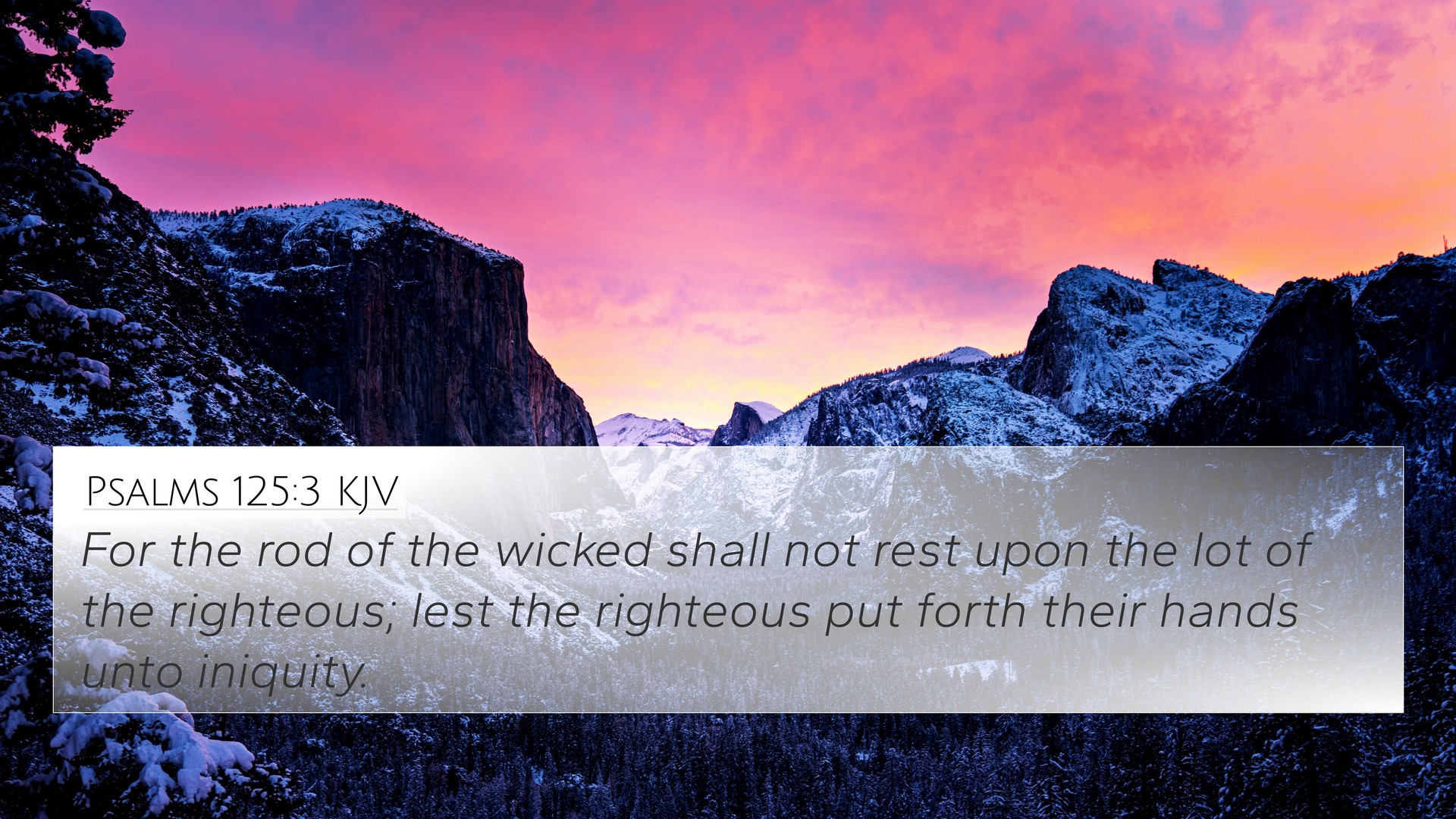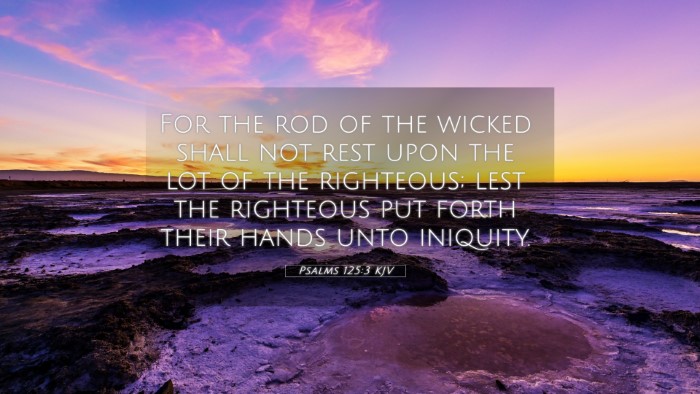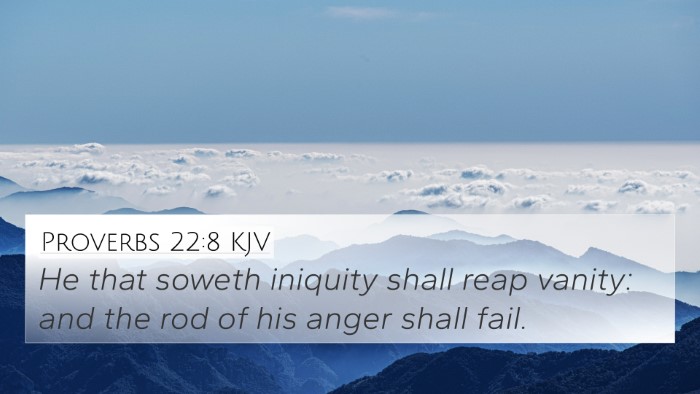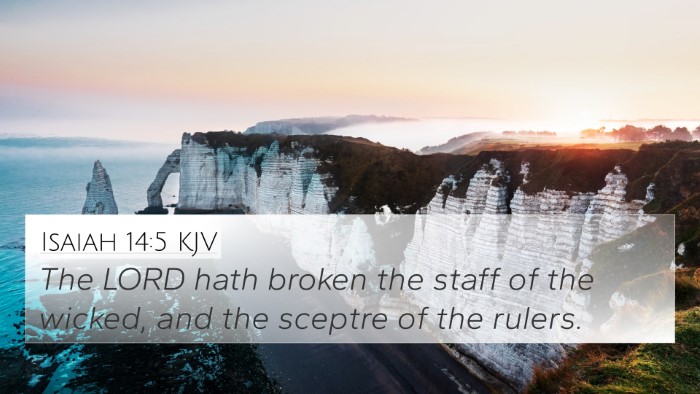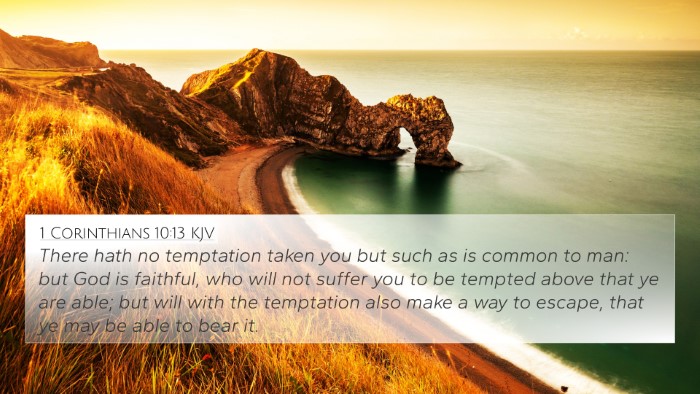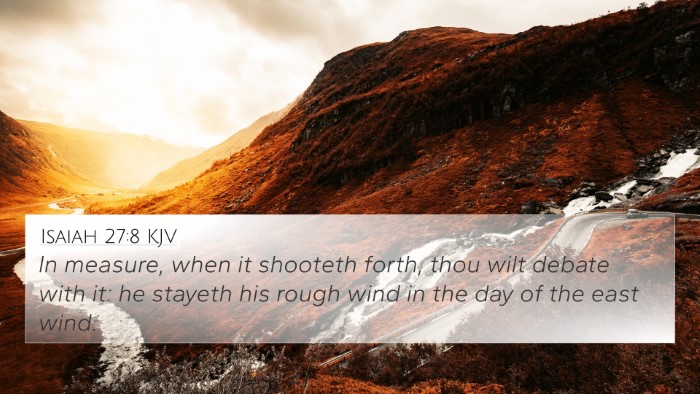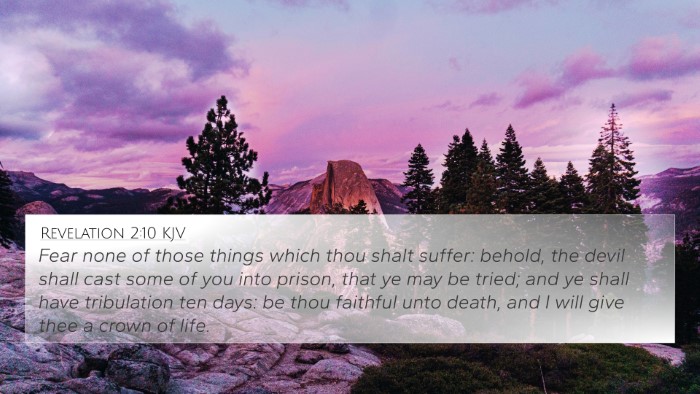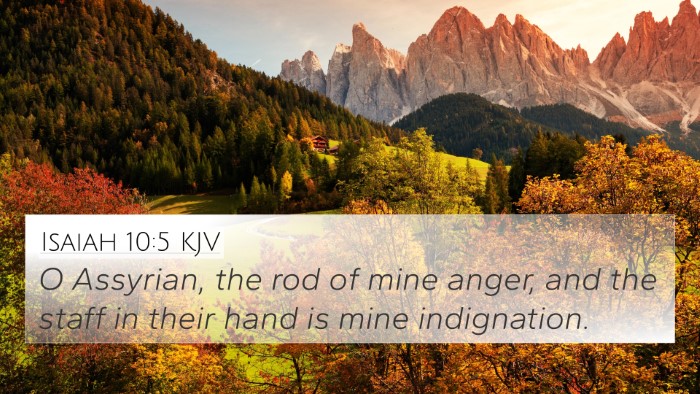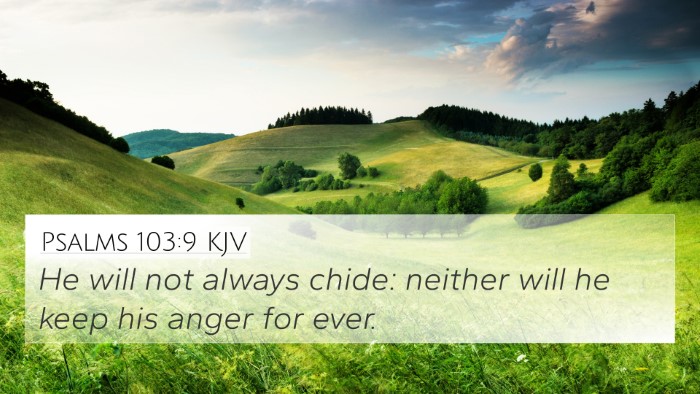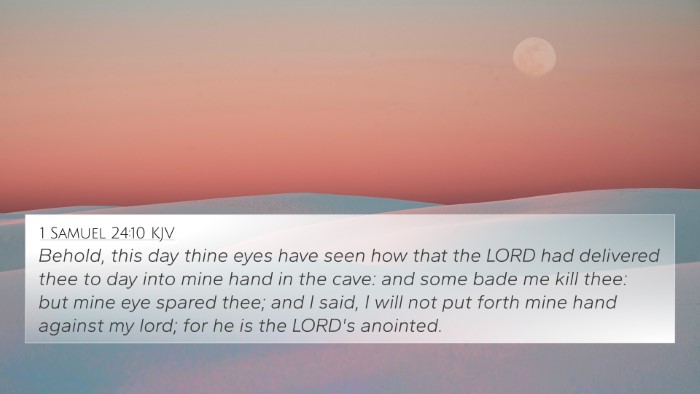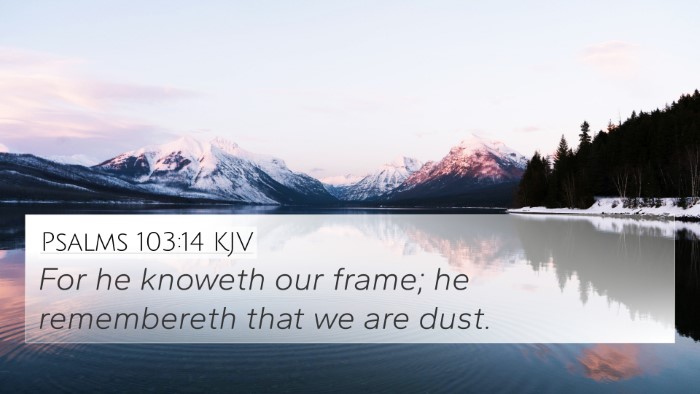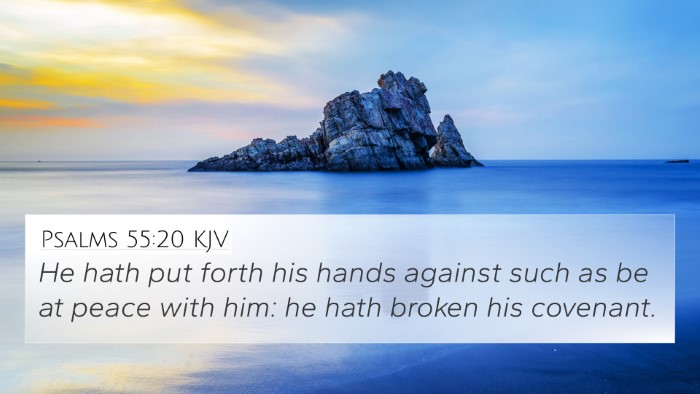Psalms 125:3 - Meaning and Interpretation
The Bible verse Psalms 125:3 states:
"For the rod of the wicked shall not rest upon the lot of the righteous; lest the righteous put forth their hands unto iniquity."
This verse highlights the divine protection over the righteous and the limitations placed upon the wicked. The commentary from Matthew Henry provides insights revealing that God's justice prevails, ensuring that the oppressor's power will not overshadow the faithful. Adam Clarke expands this interpretation by suggesting that the "rod of the wicked" symbolizes the oppression and suffering inflicted by the unrighteous.
Summary of Insights
- Divine Justice and Protection: The overarching theme in this verse is the assurance of God's protection over His people. The righteous are shielded from the unrighteous acts of the wicked.
- Call to Righteousness: There is an implicit warning against compromising one's integrity in the face of adversity. The verse encourages the faithful to resist temptation.
- Symbolism of the Rod: The "rod" symbolizes authority and power; however, it also represents punishment in the hands of the wicked that will not prevail against the righteous.
Commentary Insights
According to Matthew Henry, this verse emphasizes that God will not allow the wicked to dominate the lives of the righteous indefinitely. He notes that even amid oppression, the righteous maintain their integrity and do not turn to sin.
Adam Clarke elucidates the impact of the unrighteous on the lives of believers. Clarke interprets the "lot" as representing the portion or inheritance of the righteous, which signifies that God's favor cannot be taken away by the wicked.
Biblical Cross-References
This verse can be explored further through several cross-references that reveal thematic connections in the scripture:
- Isaiah 54:17: "No weapon that is formed against thee shall prosper; and every tongue that shall rise against thee in judgment thou shalt condemn."
- Romans 8:31: "What shall we then say to these things? If God be for us, who can be against us?"
- Proverbs 11:21: "Though hand join in hand, the wicked shall not be unpunished: but the seed of the righteous shall be delivered."
- 1 Peter 3:12: "For the eyes of the Lord are over the righteous, and his ears are open unto their prayers: but the face of the Lord is against them that do evil."
- Psalm 34:15: "The eyes of the Lord are upon the righteous, and his ears are open unto their cry."
- 2 Thessalonians 3:3: "But the Lord is faithful, who shall establish you, and keep you from evil."
- Psalm 37:28: "For the Lord loveth judgment, and forsaketh not his saints; they are preserved forever: but the seed of the wicked shall be cut off."
Thematic Connections
The verse invites discussion on the broader theme of divine justice throughout scripture. Notably, it establishes a pattern of God's involvement in ensuring that righteousness prevails over wickedness. This can be further analyzed by looking into:
- Connections between Psalms 1:6 and Psalms 125:3 regarding the fate of the wicked versus the righteous.
- Linking passages in Job 5:15-16 explaining how the oppressed find hope in God.
- Comparative analysis with Matthew 5:10-12 where Jesus speaks on persecution for righteousness' sake.
Understanding Through Inter-Biblical Dialogue
This verse stands as part of a significant dialog within the Book of Psalms, particularly in relation to the themes of justice, trust in God's provision, and the inherent struggle between good and evil. It encourages readers to reflect on their own lives and the presence of both wickedness and righteousness.
Conclusion
Psalms 125:3 encapsulates a profound truth about God's governance over humanity, assuring believers of divine support and guidance. By utilizing tools for cross-referencing, the connections between Biblical texts can be thoroughly analyzed, facilitating a deeper understanding of scripture.
